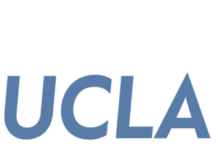 A new report published by the Latino Policy & Politics Initiative at the University of California, Los Angeles finds that the pandemic altered the plans of many prospective college students, particularly Blacks and Latinos.
A new report published by the Latino Policy & Politics Initiative at the University of California, Los Angeles finds that the pandemic altered the plans of many prospective college students, particularly Blacks and Latinos.
Data from 2020 showed that almost a third of Black and Latino students had canceled their plans to continue their postsecondary education in the fall of 2020, a much higher rate than White students. This threatened to widen pre-existing racial disparities in educational attainment.
In 2021, the pandemic was still widespread but the availability of vaccines diminished students’ reluctance to forgo their higher education. Before vaccines were available, almost 11 percent of Latino students planned to cancel all their postsecondary education plans for the fall of 2021, compared to 10 percent of Black students and 5.4 percent of White students. The vaccine rollout in the spring of 2021 cut the share of students who planned to cancel their postsecondary education by more than half across all racial and ethnic groups. Fewer students of all races canceled their educational plans, but the racial gaps in educational disruption persisted after the vaccine.
Inability to pay was the most cited reason for educational disruptions. Some 45 percent of Black students canceled their educational plans because of changes in income due to the pandemic compared to 38 percent of White students.
The authors conclude that “these educational disparities, while spurred by COVID-19, perpetuate the structural barriers that continue to limit opportunities for communities of color to use higher education as a pathway to social and economic security. Delays and reductions in higher education attainment, which are disproportionately borne by Black, Latino, and Asian students, have negative cascading effects across the lifespan. Students who are forced to delay their college plans are less likely to complete that degree, and face additional challenges to school reentry the longer they must delay. Taking additional time to graduate college also creates durable negative effects on salary and expected earnings after graduation.”











Hmm. Curious to know how high inflation is impacting these students.